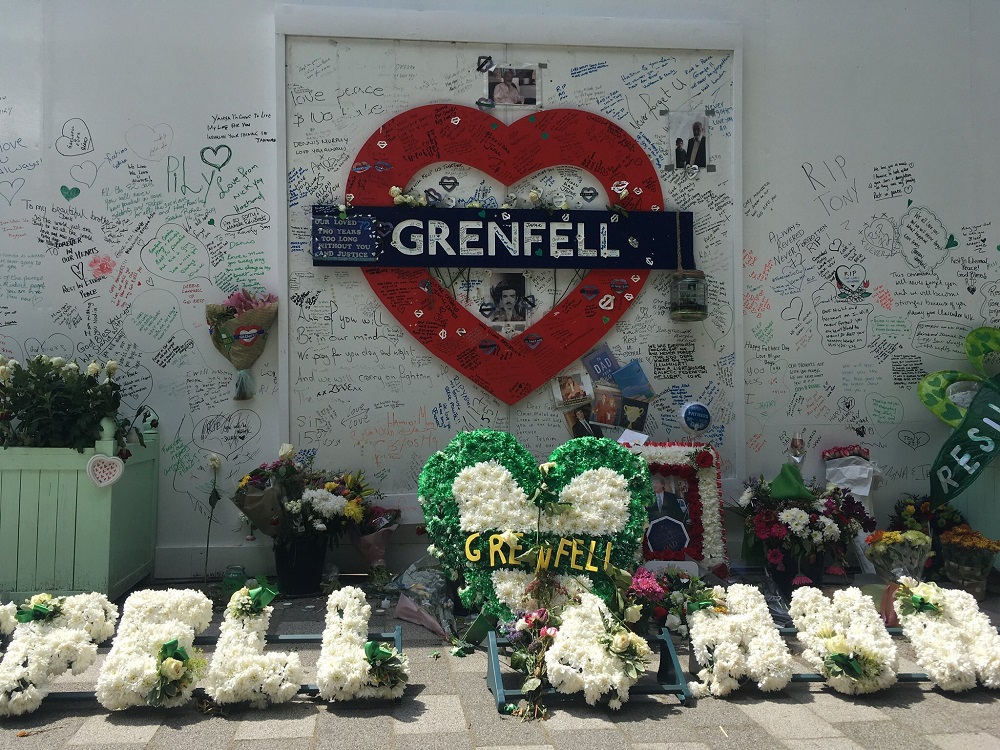Most London firefighters have received no face-to-face training on how to respond to a high-rise fire since the Grenfell disaster, senior brigade officers admitted today.
Rank and file firefighters have only received a “basic” online training programme to date – almost three years since the devastating fire destroyed the Grenfell Tower in North Kensington.
A total of 72 people were killed in the June 2017 blaze – but more lives could have been saved if people had been told to evacuate sooner, according to the report from the first phase of the Grenfell Inquiry.
But there was visible shock when newly appointed London Fire Commissioner Andy Roe told London Assembly members today that most firefighters have had only “the most basic” training on high-rise fires since the disaster.
And Mr Roe admitted that even this was not delivered until August last year – more than two years after the fire.
Speaking to the Assembly’s fire committee, he said: “We have given what I would consider the most basic provision to our officers which covers the sort of decisions they might have to make, the basic guidance.
“But that needs to be supported and better embedded with changes to operational procedure.”
The new commissioner – who was responsible for scrapping “stay put” advice at Grenfell minutes after he arrived at the fire – said senior officers have received more detailed training.
All station commanders have had face-to-face briefings on how to respond to a rapidly spreading high-rise fire like Grenfell, he said.
And crews have also received training on fire safety in high-rise blocks, which Mr Roe said would feed into their response to another fire of this kind.
But deputy committee chairman Susan Hall said the revelation was “really worrying”.
It adds to a concerning picture of training at the brigade – last month a critical report from the government’s inspector said the fire service has been “slow to implement” the changes needed after Grenfell.
Former fire commissioner Dany Cotton – who led the London service at the time of the fire – stepped down shortly before the report was made public.
Grenfell survivors had called on the Mayor to sack her after she backtracked on a controversial claim that she would not change anything about the brigade’s response to the blaze.
Since his appointment early this year, Mr Roe has accepted the need for “transformational change” outlined in the Grenfell Inquiry and Government Inspector’s reports.
NOW READ: Sadiq Khan: “outrageous” if liable Grenfell parties escape justice
He said it was a “tragedy” that it had taken a disaster like Grenfell to be the “catalyst” for change.
In his first month in the role, Mr Roe has pushed ahead with a new plan to implement the recommendations of both reports.
Crucially, the new fire chief has said all officers will receive face-to-face training on the brigade’s new high rise policy, which is due to be signed off next week.
Speaking personally about the impact of attending the fire, Mr Roe said: “I stood in front of that tower, and looked at a boxing club I’d been in many times before, that exemplified everything good about uniting London communities, burning to the ground.
“I saw the bodies of men women and children come out of the block of high rise.
“I committed hundreds of firefighters at great personal risk.”
He added: “I can’t undo what happened at Grenfell.
“But what I can tell you is my personal connection to that made me feel immediately the sadness of what I saw it do to a bit of London, to a community – and I will work tirelessly to change that.”








